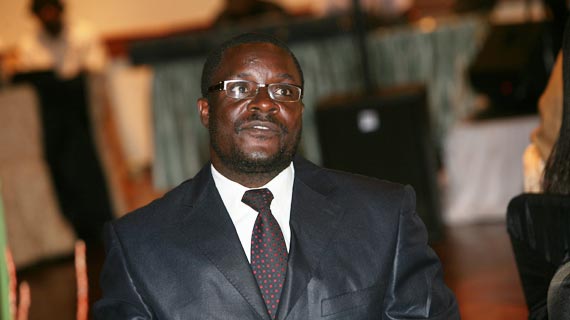
THE PUBLICATION of a memo Information and Broadcasting Services secretary George Charamba wrote to his former boss Webster Shamu on the rot at ZBC confirms the politicisation of the State broadcaster, free media lobby groups said yesterday.
NDUDUZO TSHUMA STAFF REPORTER
Public media yesterday took the unprecedented step of publishing the internal communication between Charamba and Shamu revealing that problems at ZBC that were laid bare after Information minister Jonathan Moyo’s appointment last year were discussed as far back as 2012.
Moyo sent ZBC chief executive officer (CEO) Happyson Muchechetere on forced paid leave following accusations of gross mismanagement and failure to pay workers.
A fortnight ago Charamba told MPs Shamu was aware of the rot, but could not act because of the impending July 31 elections and the dysfunctional inclusive government that was in place at the time.
However, the memo published in the Herald provided an intriguing insight into the mess at ZBC, which Charamba argues should not be blamed on politics. He also insinuated in the memo that ZBC should not tolerate “opposition” elements within its structures, confirming long held fears that workers were forced to support a particular party.
“The nature of our politics nowadays is such that you will always have one or two staffers with oppositional tendencies.
“An effective management should be able to deal with such issues,” Charamba wrote.
- Chamisa under fire over US$120K donation
- Mavhunga puts DeMbare into Chibuku quarterfinals
- Pension funds bet on Cabora Bassa oilfields
- Councils defy govt fire tender directive
Keep Reading
“One most effective way of doing so is by removing adverse factors that poison industrial relations.
“ZBC management does not appear to have done that.”
Nhlanhla Ngwenya, the Media Institute of Southern Africa Zimbabwe chapter director said the memo showed Charamba’s skewed understanding of the operations of a national broadcaster.
“No person should be discriminated on the grounds of political affiliation because everyone has a political ideology,” he said.
“The question should not be on political affiliation, but whether or not the worker speaks to the mandate of ZBC.
“He has let the cat out of the bag that if you are not Zanu PF you must not work for the State media.”
Ngwenya said ZBC was in its current mess because of political meddling as illustrated by Charamba’s memo.
“He told Parliament that Muchechetere was not qualified for the CEO post,” the Misa director said.
“Charamba is also to blame for the mess at ZBC because it shows that Muchechetere was hired through political consideration.
“He is trying to exonerate himself yet he is part of the ministry.”
Voluntary Media Council of Zimbabwe director Loughty Dube said Charamba’s statements were worrying.
“It is a worrying statement from the permanent secretary. We expect people to be hired on professional lines,” he said. “We expect employees of ZBC to work in a professional manner and be apolitical in discharging their duty.
“Remember ZBC is a public organisation meant to serve the people of Zimbabwe in a professional way.”
Charamba, who also doubles up as President Robert Mugabe’s spokesperson, revealed in the memo that he was opposed to the $10 million lawsuit against The Standard by ZBC. The newspaper had written a story about ZBC managers paying themselves huge salaries while their subordinates went unpaid.
“The attempt at suing The Standard for a negative article was ill-advised, and I dissuaded ZBC from such an unthoughtful action,” Charamba revealed.
“Incidentally, the CEO never approached this ministry on the same matter, even though he was going to drag a government concern into litigation.
“The rules are very clear: You don’t commit a concern’s money that way, let alone go to court, without the involvement of the shareholder.
“He did not even attempt to clear himself and his management to the shareholder on the issues raised by The Standard.”
ZBC has in the past tried to shrug off criticism that it is an extension of Zanu PF.










